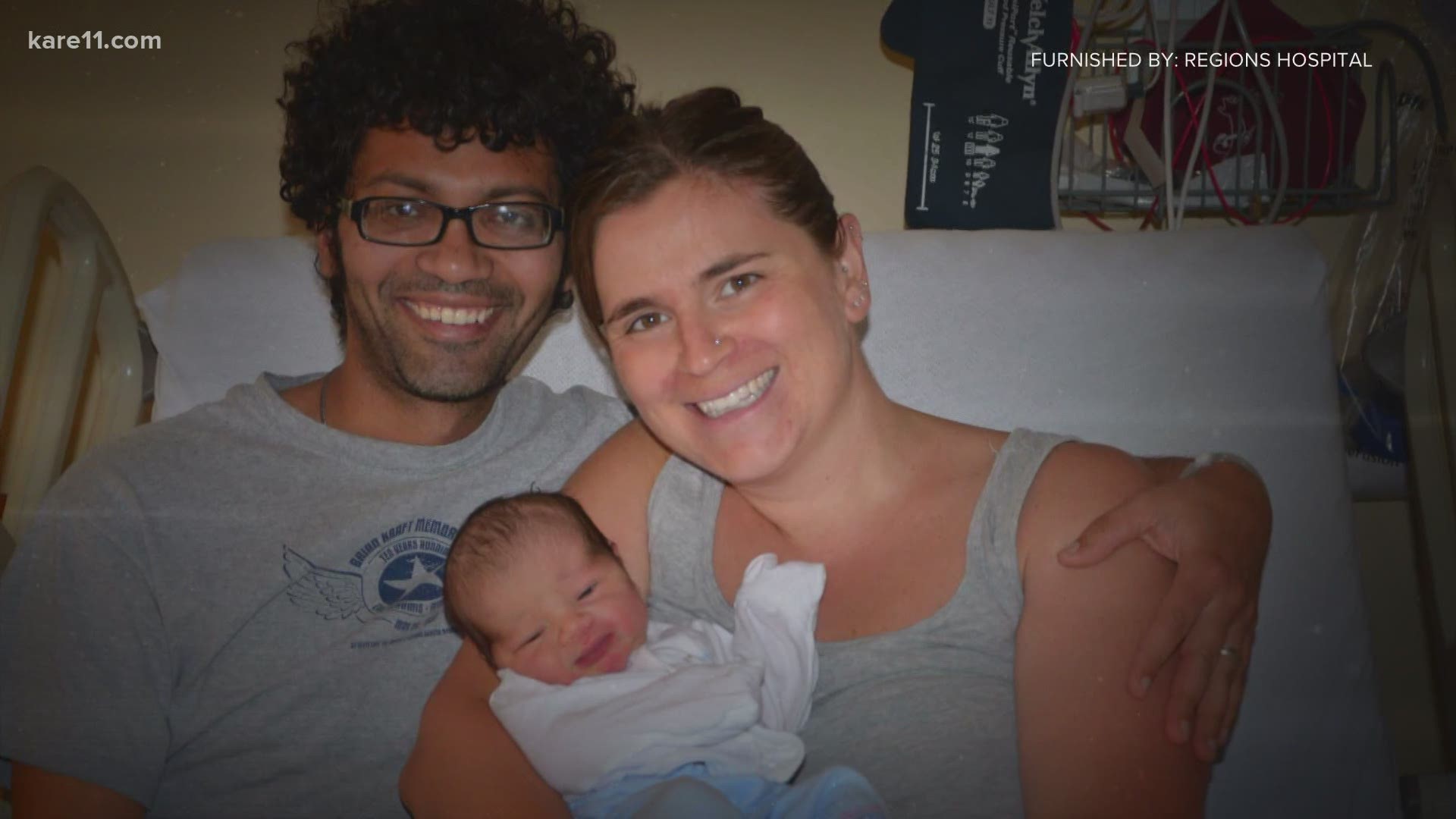ST PAUL, Minn. — Having a baby is an exciting time, and that doesn't change during a pandemic. But, lots of things surrounding the delivery have changed in the past couple of months.
“We've been more cautious, and we've been more isolated from our family and friends, which feels really different,” says Laura DeSouza.
You'd think after four babies that Laura and Glen would have it down. But as 2020 does, it changes things, well, some things.
“We were not stressed at all going in. We knew we were going in to be admitted and we'd come out with a baby,” say husband Glen.
They did, in fact, come out with a baby. Her name is Eliza. And, they also came out with a good story.
“We were there about five hours before she was born and Margaret was there the entire time, didn't leave my side,” says Laura.
Margaret is a midwife, but more than that, she has a special connection to this family.
"I've had only two families that I've delivered three of the siblings, and Laura is the only person that I've taken care of all four family members, through all four of the pregnancies, so that's really special,” says Margaret Szondy, Director of Nurse Midwifery at Health Partners.
Eliza was one of the first babes born at Regions new Family Birth Center. The Center was supposed to open April 22nd, but as Margaret says, they were a bit overdue. They instead opened July 22nd, just in time to keep the streak going if you will.
“Margret was a huge part of helping me take of myself,” says Laura.
“That was really what made me realize Margaret is someone who is really special, and more than just a provider, and really cared about me as a whole person,” she adds.
Regions Midwifery program has been recognized nationally for their care and practices and clearly because of their people.
“You form a bond with your patients when you're involved in that much of their life,” says Margaret.
Regions Family Birth Center was designed with the community it serves in mind. Sixty percent of patients who deliver there are people of color and 25% do not speak English as their first language. The center will focus on improving health outcomes and allowing families to have a birth experience that reflects their culture and values.

